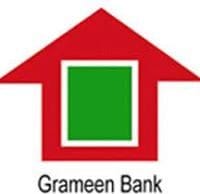Turkish Grameen Microcredit Project
The Turkish Grameen Microcredit Project (TGMP) has taken off and is now slowly spreading out in Diyarbakir province in eastern Turkey. It is providing financial services to the poorest women through two branches, following the Grameen Bank Approach. The first loan from the project was disbursed on 18 July, 2003. Recep Tayyip Erdogan, the Honorable Prime Minister of Turkey, distributed the first loan.
Prime Minister H.E. Recep Tayyip Erdogan handing over the first loan to borrower Ms. Turkan Dalgic of the microcredit project in Turkey.
Grameen Trust is implementing TGMP under its Build, Operate and Transfer (BOT) model, with the financial support from the Turkish Foundation for Waste Reduction. The project is playing a pioneering role in development of microfinance in Turkey, which has serious problems of poverty and unemployment, but has virtually no experience of using microcredit as the instrument for poverty reduction. TGMP has already disbursed US $38,000 amongst 108 borrowers for various activities including milch cow, cattle and sheep fattening, petty trade, washing machine, hairdressing and handicrafts. It is also mobilising savings from its borrowers. Given the opportunity, many poor women forming groups of five, are coming forward to get themselves enrolled in the project. The project is enjoying 100% repayment rate. It expects to reach about 5000 poorest women by 2006 and attain operational self-sufficiency within this period.
In Turkey, about one third of its seventy million people is considered as poor. They are dependent on charity from the government and other sources. The subsidised and target oriented credit programs aimed at helping the poor farmers and small entrepreneurs through Halk and Ziraat Banks, resulted in large accumulated credit losses. Under these circumstances, Grameen Trust believes that the microfinance program can grow on a sustainable basis in Turkey, provided it is able to create a culture of dignity, instead of charity and enjoy an enabling environment for that.
In recognition of the potential role of microfinance in poverty reduction and in order to facilitate its growth, the regulatory authority BDDK, in consultation with civil and public institutions, IFC, KFW, developed a microfinance draft law for Turkey. It is definitely a welcome step. But before enacting it as a law, it should be remembered that as a matter of fact development of regulatory framework for microfinance institutions often comes after it has reached a certain stage of development which is lacking in Turkey. Adequate care should therefore be taken to ensure that it does not give birth to unintended results. It should remain flexible in order to accommodate changes in case such changes, become necessary for the sustainable development of poverty focused client friendly microfinance industry in Turkey.
H. I. Latifee, Grameen Trust

